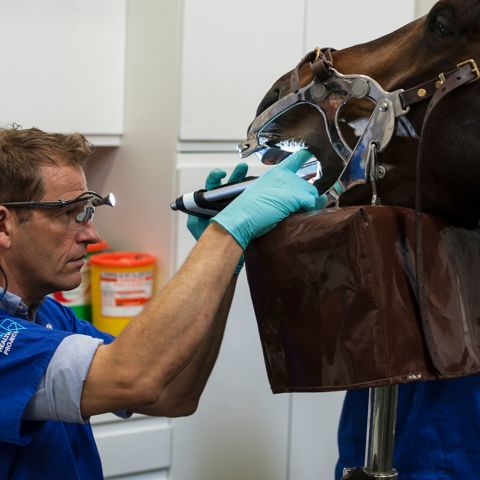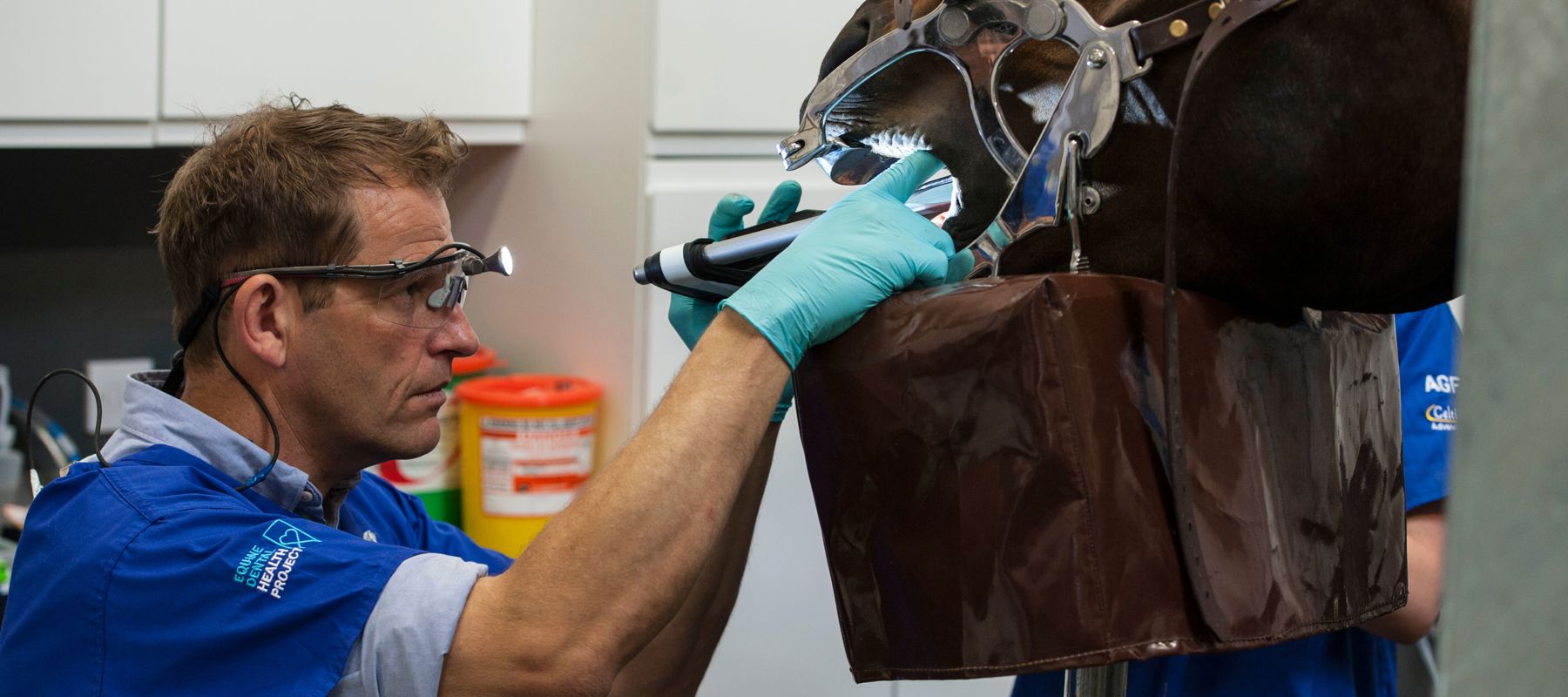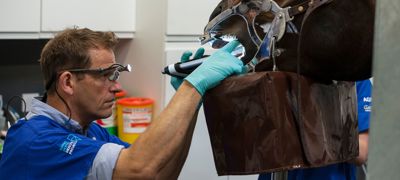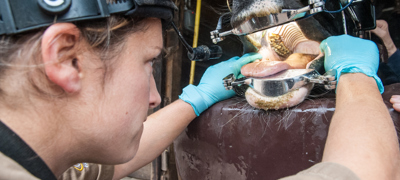Who should examine my horse’s teeth?
There are two key people who will be suitably qualified to check your horse’s teeth:
- An equine veterinary surgeon trained in modern dentistry.
- A qualified Equine Dental Technician (EDT). Members of the British Association of Equine Dental Technicians (BAEDT) and category 2 members of the World Wide Association of Equine Dentists (WWAED) are required to have passed a DEFRA approved exam, follow a code of conduct and be fully insured.
There may be instances when a qualified EDT will have to request a veterinary surgeon to attend for example to sedate the horse, or when more invasive treatment is required.
Be aware that there are many ‘equine dentists’ who do not have sufficient qualifications. As a result, serious problems could be missed, or ineffective treatment given to your horse which could have serious implications in the future.
At what age should I start getting my horse’s teeth checked?
Getting your horse's teeth checked every nine to 12 months from when they are a foal (to make sure the teeth are aligned and erupting correctly), will go a long way to making sure they have the healthiest teeth leading into their older years. The occurrence of periodontal (inflammatory) disease increases with age but can be prevented with routine dental examinations.
It is especially important to have your horse’s teeth checked before introducing the bit for the first time. The presence of any wolf teeth has the potential to cause interference and discomfort. It is important the horse has a pain-free experience otherwise they may negatively associate that having a bridle put on will cause discomfort or pain.
If you have recently purchased a horse, it is sensible to have their teeth checked as soon as possible. The history of the horse may be unknown to you, and it is important to identify any problems.
What happens at the dental visits?
It is best if your horse is stabled and relaxed for a dental visit. If stabling is not available, find a quiet sheltered area in the field where your horse can be kept in a safe space, without their companions being able to gain access. Arrive early and make sure the area is clean and tidy. Don’t give a feed before the visit. The vet or EDT will need water; preferably warm in the winter. The routine for the procedure is normally as follows:
- Your vet/EDT will ask some questions including age, veterinary and dental history, and if there are any problems with ridden performance or changes in behaviour. All details will be logged for record purposes.
- Sedation may be given, but you do not need to be concerned about this. Just like with humans, dental examinations are not always comfortable, especially if pain is present. Your horse will naturally not want any painful areas touched or examined and they can be easily missed on an unsedated equine. If your horse requires sedation, the intravenous injection can legally only be administered by a vet.
- A mouth speculum (‘gag’) is placed to keep the horse’s mouth open and is then washed out thoroughly. The head may be placed on a head-stand so your EDT/vet can have a good look without holding the head up.
- A thorough examination is carried out – looking with a bright head light, feeling all the structures and recording the findings on the chart. A dental mirror will be used to see every angle. Dental picks and probes are also used to check for gaps, cavities, and other diseases.
- Treatment of sharp points, any overgrowths of individual teeth and general uneven wear is performed using either hand rasps or motorised instruments. Special training is always required for motorised instruments.
- The mouth is rinsed and re-examined; further rasping may be needed to make sure nothing had been missed.
- The speculum is removed and the incisors are checked again, ensuring good contact between the teeth.
- Once the treatment is completed it will be recorded on the chart for future use and recommendations for follow-up are discussed with the owner or carer.




